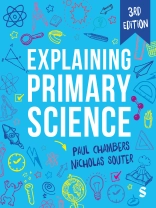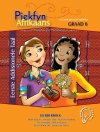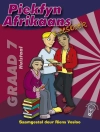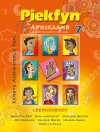Successful science teaching in primary schools requires a careful understanding of key scientific knowledge. This book covers all the major areas of science relevant for beginning primary school teachers, explaining key concepts from the ground up, helping trainees and recently qualified teachers develop into confident science educators.
This new edition comes with:
- An exploration of scientific misconceptions on key topics
- How to take action to protect the environment through primary science teaching
- A newly streamlined focus prioritising essential primary school subject knowledge
- Links to national curricula for England and Scotland
- Videos of useful science experiments and demonstrations for the primary classroom
Jadual kandungan
Introduction: Teaching primary science today
Chapter 1: Biodiversity
Chapter 2: Ecosystems
Chapter 3: Microorganisms and Cells
Chapter 4: Plants
Chapter 5: Animals
Chapter 6: Variations and Adaptation
Chapter 7: Animal Behaviour
Chapter 8: Types of Matter
Chapter 9: Properties and Uses of Matter
Chapter 10: Materials from the Earth
Chapter 11: Chemical Changes
Chapter 12: Water and its Uses
Chapter 13: Space
Chapter 14: Energy
Chapter 15: Electricity
Chapter 16: Light
Chapter 17: Sound
Chapter 18: Forces
Chapter 19: Gravity and Weight
Mengenai Pengarang
Nicholas (Nicky) Souter’s early years were spent exploring woodland, peat bogs, lochs, and the local Campsie Fells taking in their natural history.His first formal science lesson in ‘the big school’ included being told that the universe includes matter and energy. That elegant and intriguing starting point was the hook that set him on a lifelong journey of sharing science, its processes and philosophies, with school pupils and teachers. He possesses undergraduate and postgraduate qualifications in life science and in education, is a Chartered Science Teacher and a Fellow of the Royal Society of Biology. Nicky has held teaching, leadership, and examining roles in secondary and higher education. Academic life at the University of Strathclyde included teaching, research, consultancy, and authorship, having contributed to more than 25 books, several of which offered supportive advice to life science teaching at all levels of the school curriculum. Following retirement consultancy, providing primary science CPD and citizen science projects keep him engaged in science and science education.Nicky asserts ‘secure learning is built upon first-hand direct experiences’.












